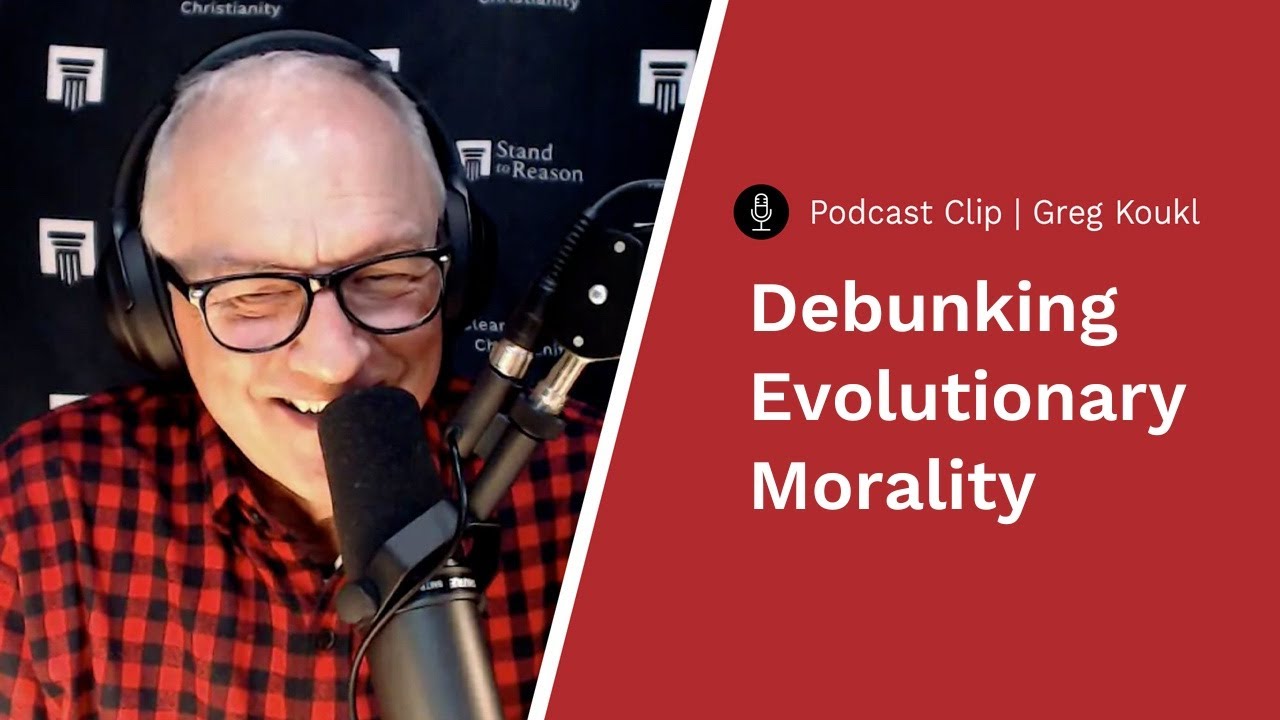
Is Our Conscience Just a Product of Evolution?
Greg explores the limitations of Darwinism in accounting for moral beliefs, arguing that if morality is merely a product of evolution, it leads to relativism rather than objective moral truths.
#StandtoReason #Apologetics #Christianity #Morality #Science #RightandWrong #Conscience #Darwinism #Philosophy
————— SUBMIT YOUR QUESTION —————
If you’d like to submit your question ahead of time for the Stand to Reason broadcast, or if you’d like to submit a question for the #STRask podcast, fill out our form at https://www.str.org/broadcast.
————— FIND MORE FREE TRAINING —————
Website: https://www.str.org/
Stand to Reason University: https://training.str.org/
Stand to Reason Apps: https://www.str.org/apps
————— CONNECT —————
Twitter: https://twitter.com/STRtweets
Facebook: https://www.facebook.com/standtoreason93
Instagram: https://www.instagram.com/standtoreason
LinkedIn: https://www.linkedin.com/company/stand-to-reason/
————— GIVE —————
Support the work of Stand to Reason: https://str.org/donate
source









functionalist (or atheist?) recipe for objective morality:
If you want an objective morality, posit a teleology for the universe and existence within it. Whatever you think that teleology is, actions that foster the teleology are de facto good actions, actions that go against that teleology are de facto bad — at least on the hypothesis that your teleology is "true". How do you know your teleology is "true"? I don't exactly know, but I suspect it's analogous to knowing your body is "well", only scaled up to a society.
What does this have to do with atheism vs. theism? Simple: atheists can believe in "teleologies" rather than God (i.e., a sentient "law giver"). If atheists do this, they can claim the same level of moral objectivity (aka moral grounding) as theists do, though I'm not denying atheists won't have to work harder (than theists) to be convincing. However, nobody said it would be easy.
There is a common thread in most morality frameworks that’s worth discussing: preservation of life and social structure. This is because things that don’t destroy themselves tend to be more prolific than those that do, by virtue of continuing to exist. This means that regardless of one’s moral system, these values must hold. Furthermore, properties that make a society more successful will help it win out against others and will therefore also be common, despite differences in implementation.
Ultimately, this addresses the mind body problem and how it relates to emergent properties theory of the dualism. I offer a possible evidence for my particular view on this. It takes 25 years for a human brain to fully develop into a mature organ. However, we see many examples of very young children exhibiting intellectual gifts that outshine adults with fully developed brains. If intelligence is an emergent property of the brain, wouldn't one expect it to take 25 years to develop its full potential? At least one should see a brain and intellect development following a similar curve over time. However, with gifted children this is not the case. Could this be evidence that the human mind is not an emergent property of the brain? Does this destroy the emergent property theory and bolster the immaterial mind linked to a material brain?
Our conscience and consciousness points to God.
Jesus lives! ♥️ and is Yahweh God 🙏🏻 Christ ✝️ and King 👑
You can use the good for the whole to justify murder very easily. Climate activists could claim by killing the elderly or just certain populations that are large in number we will help the whole by reducing human energy consumption which stabilizes climate change. There are tons of justifications you can bring depending on the circumstances for all of our evils. This is why saying things are good if they bring order that the world simply doesn’t work. Good must be objective and above us or there is no good, no evil just pitiless indifference.